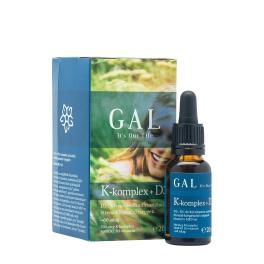Vitamin D is a collective name for a group of fat-soluble compounds, including, among others, cholacciferol (D3) and ergocalciferol (D2). Cholacciferol is produced by the body from cholesterol, which requires UVB radiation (sunlight).
Vitamin D increases the absorption of calcium, magnesium and phosphate in the intestines, which can lead to bone diseases in the absence of vitamin D. Vitamin D also plays an important role in immune processes, reducing inflammation in the body, thanks to its ability to influence the division, differentiation and death of inflammatory cells. This gives it anti-bacterial and anti-infective properties.
Vitamin D deficiency in children causes angioedema, where bones become soft, deformed and weak. In young people and adults, vitamin D deficiency causes bone softening, which is associated with pain and muscle weakness.
Because everyone is exposed to different amounts of UV light, the recommended daily amounts vary widely. If you look at our ancestors, who lived a hunting, gathering lifestyle, they were exposed to a lot of sun and their blood levels of vitamin D can be very high. However, in today's world, sunlight also has a stronger DNA-damaging property, which is why you can't sunbathe for very long.
In general, the recommended daily intake of vitamin D (RDI):
- Under 18 years: 600 IU
- Adult 600 IU
- Over 70: 800 IU
The upper tolerable limit:
- 0-6 months: 1000 IU
- 7-12 months: 1500 IU
- 1-3 years: 2500 IU
- 4-8 years: 3000 IU
- 9 years and over: 4000 IU
- During pregnancy: 4000 IU
The current tolerable daily limit of vitamin D is 4000 IU, but a growing number of studies are coming out that in the long term, 10000 IU of vitamin D may not pose any risk in healthy adults. However, side effects have been reported at extremely high intakes (50 000 IU and above), with vomiting, increased urination, thirst, encephalopathy (a disease affecting brain function) and kidney failure occurring at such high doses. Unintentionally, overdosing can occur if a person eats a lot of vitamin D fortified foods with a large amount of supplementation.








































